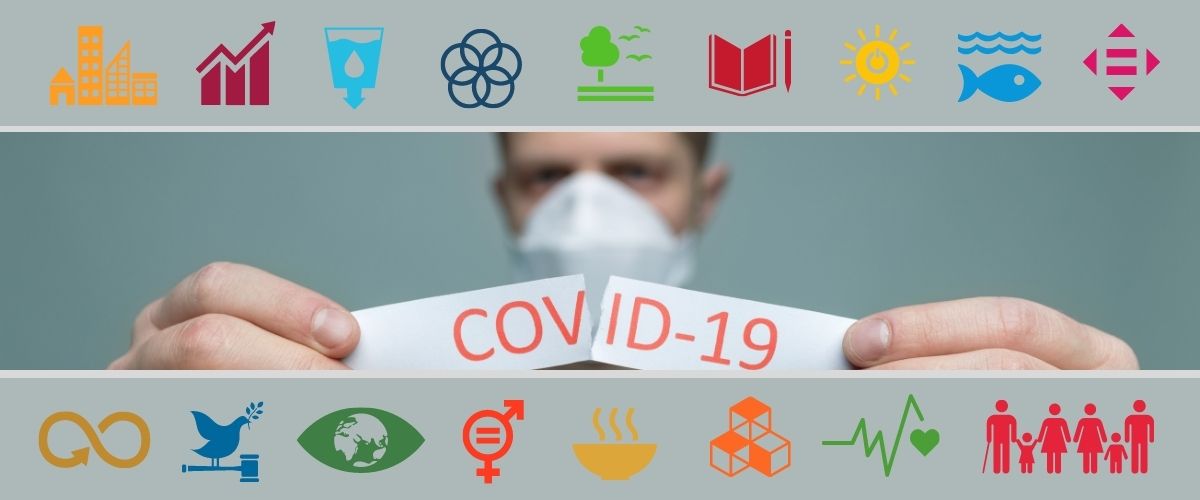A territorial approach to SDGs in the framework of long-term COVID-19 recovery strategies

Stefano MARTA, PhD
Coordinator, Territorial Approach to SDGs
Cities, Urban Policies and Sustainable Development Division
Centre for Entrepreneurship, SMEs, Regions and Cities
Organisation for Economic Co-operation and Development (OECD)
The COVID-19 pandemic poses unprecedented challenges to sustainable development. The OECD's 2020 Economic Outlook highlights that the prospects for a possible exit from the crisis have increased, with encouraging news on progress toward an effective vaccine, but that the short-term prospects remain uncertain. Assuming that new spikes in the virus are contained, and with the hope that a widely available vaccine towards the end of 2021 will help to build confidence, a gradual but uneven recovery in the global economy is expected to occur over the next two years. This year, following an astronomical drop in global GDP, the latter is expected to increase by nearly 4¼ per cent in 2021 and by a further 3¾ per cent in 2022 (OECD 2020).
In this context, SDGs are more important than ever as they provide a clear and stable framework to guide governments in defining a transformative revitalization of COVID-19. The transformative nature of Agenda 2030 provides a unique opportunity for national, regional and local governments to promote a new sustainable development paradigm and to set themselves on the path to a strong recovery from COVID-19. All levels of government must share responsibility for building a more sustainable and resilient society.
The OECD work on a territorial approach to SDGs emphasizes that SDGs are both timely and relevant because they provide a long-term framework for reshaping planning, policy, strategy and budget from the ground up to recover from COVID-19. The SDGs enable, among other things, the following:
• Identify place-based priorities, reorient existing strategies and plans or develop new ones in the cities :
o Such is the case in the city of Bonn, Germany, where the city council adopted the city's first sustainability strategy using SDGs to promote low-carbon transportation, clean and affordable energy, fair trade and global responsibility ;
o The city of Moscow, Russian Federation, uses SDGs as a checklist to assess the extent to which local development programs are in line with sustainable development outcomes ;
• Elaborate new regional development strategies focused on sustainability :
o In Southern Denmark, SDGs have helped to design the new South Denmark Strategy for the future 2020-2023 with sustainability at its core, building on the previous one which was strongly welfare oriented ;
o In Viken, Norway, the newly elected county government approved the SDGs as a holistic framework for the implementation of territorial reform and for formulating the regional planning strategy for a sustainable Viken 2020-2024 ;
o In Flanders, Belgium, Vision 2050 sets an aspiration for a sustainable region and 7 transition areas to achieve it, while Focus 2030 guides the implementation of SDGs and sets medium-term targets towards 2030 ;
• Promote vertical coordination between national, regional and local levels of government in order to align priorities, incentives, objectives and resources:
o For example, central governments in Germany and Japan are promoting the "localization" of SDGs, helping cities and regions to use SDGs in their local strategies, both financially and through capacity building.
• Engage with the private sector to develop sustainable business models:
o The city of Kitakyushu, Japan is rethinking its environmental actions based on the SDGs for clean energy and climate action to improve the local ecological footprint and create jobs in the areas of eco-industry development and offshore wind energy production.
o The municipality of Kópavogur, Iceland, through its marketing office, has developed a memorandum of understanding with local companies to work together on the implementation of the SDGs ;
• In many cases, SDGs have also been a vector for stimulating the engagement of civil society and citizens, particularly the youth:
o The province of Córdoba, Argentina, has engaged extensively with local actors (civil society, universities, private sector) to analyze the synergies and trade-offs among SDGs ;
o The State of Paraná in Brazil is using Agenda 2030 to engage and communicate with the civil society, the youth and the creative industries.
SDGs provide an excellent opportunity for cities, regions and national governments to intensify their sustainable development efforts and develop their medium- and long-term recovery strategies based on COVID-19.








































































